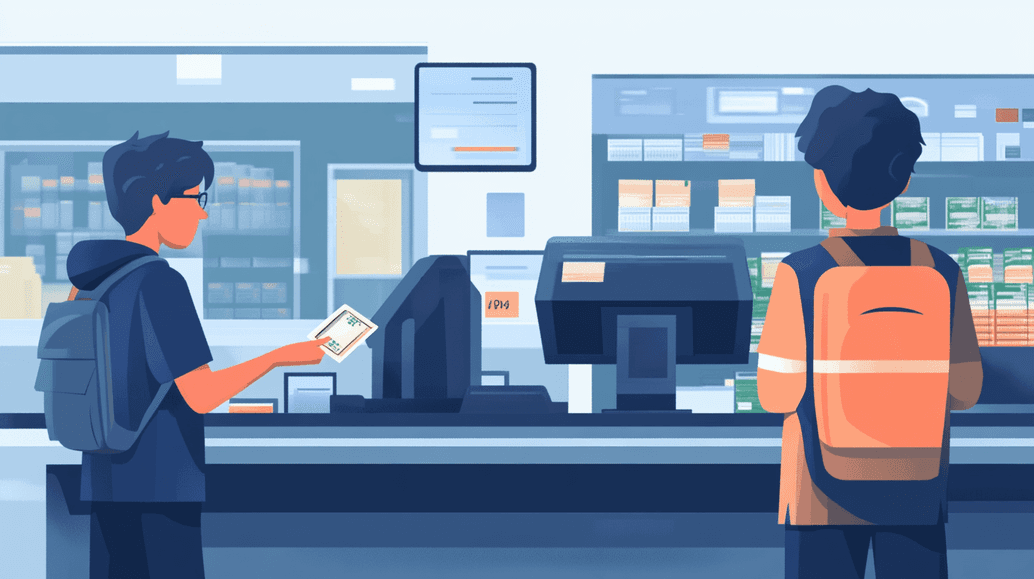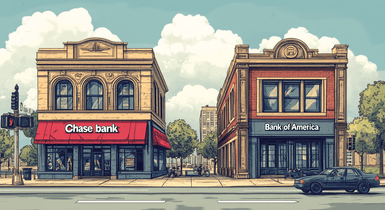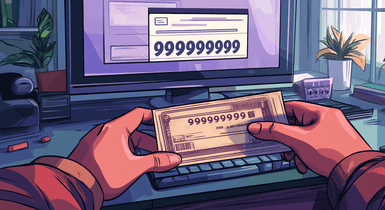How to Get a Money Order? Best Places and Fees

Money orders are a secure and widely accepted way to send or receive funds when other forms of payment, like cash or a check, are not suitable. It’s a reliable and convenient option to pay rent, transfer money to a family member, or make a purchase from a seller who doesn’t accept credit cards. But where exactly is the best place to buy a money order?
In this guide, we’ll explore where to get a money order, describe what fees you can expect there, and how to pick the right one. Whether you need a one-time money order or plan to use this payment method regularly, knowing your options will make the process far more convenient.
Banks and Credit Unions
It’s the most obvious place that comes to mind when you ask yourself, “Where can I get a money order?” If you already have an account with a bank or credit union, this method can be quite convenient, as it allows you to easily access your funds for the purchase.
Most banks and credit unions offer money orders for a small fee, though the exact cost can vary depending on the institution and your account type. Some may even waive the fee for premium account holders. Can you get a money order with a credit card, though? Typically, you can’t use a credit card to buy money orders at a bank or any other place.
Pros | Cons |
|---|---|
Trusted and secure method, ensured by well-established institutions. | Higher fees for non-account holders when compared to other options. |
Higher transaction limits are useful if you need to send a lot of money in one go. | Limited operating hours, which might be a problem if you’re in a hurry. |
Convenient for account holders, as it makes the whole process easier and can even save you some funds on fees. | Low accessibility in rural and less populated areas, with fewer bank branches available there. |
Good record-keeping makes it easier to track payments and provide proof when needed. | |
Access to additional financial services, like wire transfers or cashier’s checks, for more flexibility in handling your finances. |
Post Offices
The US Postal Service (USPS) is by far the most popular and cheapest place to get a money order if you need to send a payment within the US. Conveniently located in both urban and rural areas, most post offices are open six days a week, and some even offer extended hours.
To buy an order, you should visit the nearest post office, fill out a special form, and pay for the order with cash, debit cards, or traveler’s checks. How much is a money order at the post office? You’ll pay only $2.35 for an order up to $500 and $3.40 for an order between $500 and $1,000
Pros | Cons |
|---|---|
Widespread availability, with thousands of USPS locations across the US, including rural areas. | Lower transaction limits at $1,000 for domestic orders. You’ll need to purchase several orders if you plan to send more in one go. |
Low fees starting at $2.35, which makes it a cost-effective choice for smaller transfers. | No credit cards are accepted for payments. |
Wide acceptance within the US, making it a trusted option for businesses and individuals alike. | USPS ceased selling money orders internationally on September 30, 2024. You can cash out existing money orders until October 1, 2025. |
Secure and trackable using the receipt. If lost or stolen, your money order can be replaced or refunded. |
Retail Stores

Big retailers, including chains like Walmart, CVS, and 7-Eleven, also provide affordable money order options. Available almost everywhere, these locations are easy to access. Many of them are open late, and some, like 7-Eleven, are open 24 hours, offering more flexibility for busy schedules or time-sensitive situations.
Retailers also tend to offer some of the lowest fees for money orders, making them the most budget-friendly option. If you are wondering, “Where is the cheapest money order?” check Walmart, which claims the charge won’t exceed $1 per order. CVC fees are usually around $1.25, and at 7-Eleven, fees vary by region and fall between 1% and 3% of the order amount.
Convenience Stores and Supermarkets

How to get a money order if you happen to live in a smaller city or less urbanized area? Local supermarkets and grocery stores are where you should go. Maintaining established relations with trusted money transfer providers, they often have long open hours and operate 24/7, making an easy solution for those who don’t live near a bank or prefer the convenience of getting a money order while running other errands.
Western Union and MoneyGram Locations

With thousands of locations worldwide, these services are handy for individuals who need to send money securely across borders. Available in convenience stores, supermarkets, retail chains, and dedicated money transfer outlets, these systems also offer online services, allowing users to send money orders and complete transactions digitally. However, you should be aware that their order fees can be as high as $5, and international transfers might take longer to process.
Alternatives to Money Orders

While secure and reliable, money orders are not the only convenient way to send money. There are a few other alternatives you might want to consider:
- Cashier’s checks: Issued by a bank and guaranteed by its own funds, cashier’s checks ensure the highest level of security while allowing for high-value transactions above $1,000. Though it entails higher fees ($10–20), this method is widely trusted by businesses and government institutions.
- Online payments: Platforms like PayPal, Venmo, Zelle, and Cash App enable users to send and receive money instantly via the Internet or mobile apps. They are great for immediate payments from anywhere and offer low to no fees. However, they are more vulnerable to cyberattacks and fraud.
- Bank transfers: ACH transfers are commonly used for operations like direct deposit, bill payments, and money transfers between your accounts. Wire transfers are suitable for time-sensitive, high-value payments. Both methods enable direct transfers between bank accounts and are fit for handling large sums of money. However, wire transfers typically come with higher processing fees (up to $50) and can take up to three business days to process.




